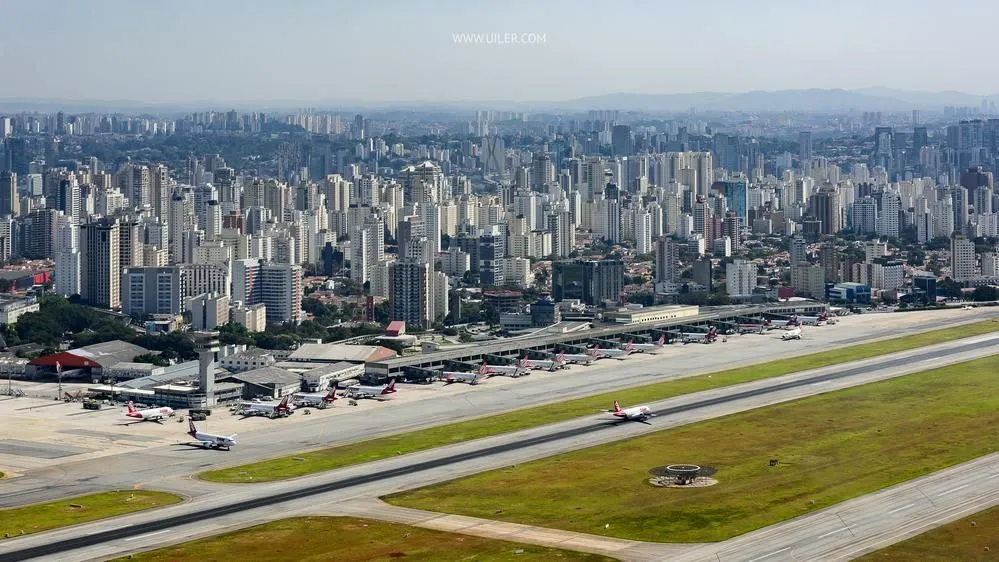On Tuesday, Congonhas Airport in São Paulo encountered operational issues under its new private management.
Aena Brasil, succeeding Infraero, now oversees the airport after the August 2022 privatization auction.
During the morning, the flight information system showed inconsistencies, causing flight delays.
By 4:30 p.m., Aena stated the problem wasn’t fully resolved, but they were reducing its impact.
Aena reported that 65% of Tuesday’s flights, until 3:10 pm, either left on time or had minor delays.
Morning rains, they added, caused some of these delays by holding planes on the ground.
In passenger volume, Congonhas ranks second in Brazil. Aena, supervised by the Spanish government, now manages it.
Before the pandemic in 2019, the airport served 22.2 million passengers. This number dropped to 17.7 million in 2022.
From January to August this year, the count reached 14.1 million.

Aena’s responsibilities include expanding boarding areas, improving access routes, updating restrooms, and refreshing the building’s exterior.
They’ll also refurbish taxiway surfaces, expand aircraft parking, and construct a new terminal.
By November’s end, Aena will manage 17 airports across nine Brazilian states, accounting for 20% of Brazil’s domestic flights.
Background
Congonhas Airport has a rich history dating back to 1936, making it one of Brazil’s oldest operational airports.
For many years, it was São Paulo’s primary aviation gateway. Over time, its importance shifted, with Guarulhos International Airport taking the lead in international flights.
However, Congonhas remained vital for domestic travel.
Before privatization, Infraero, a government entity, managed Congonhas and several other Brazilian airports.
The push for privatization stems from Brazil’s aim to boost efficiency and fund infrastructure improvements.
Globally, many countries have adopted similar privatization models for their airports.
Such changes often bring new investments, modernization efforts, and heightened competitiveness.

